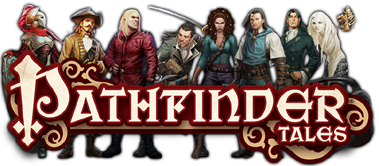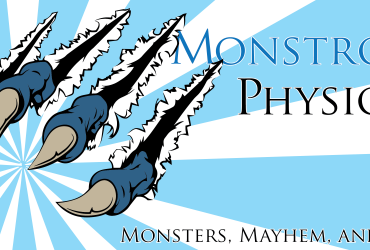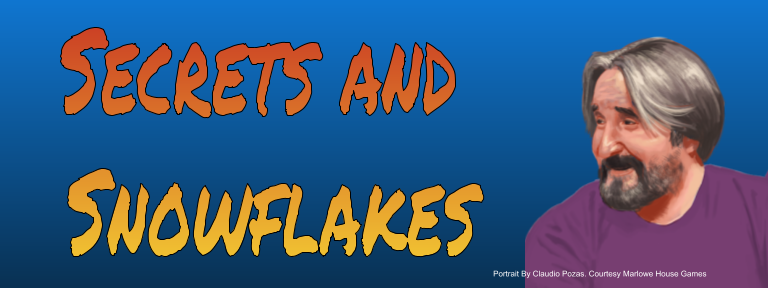We often talk about game rules, modules, campaign setting guides, other books that directly impact your game table. What we don’t talk about so much is fiction and other non-game reading, and how what you read can make your game better.
First, it doesn’t matter what you read. Whether you read fantasy, horror, science fiction, romance, history, or true crime, you can draw on everything when you sit down at your table. So, what follows is a list of books I’ve found inspiring.
Pathfinder Tales (various authors) – Let’s just get the obvious out of the way. If you are running a campaign set in Golarion this is one of the best ways to immerse yourself in the setting. I haven’t read all the books in the line but have thoroughly enjoyed those I have. I’ve also taken inspiration for my current Kingmaker PC from a small setting detail I hadn’t considered as a starting option before it came up in two separate books.
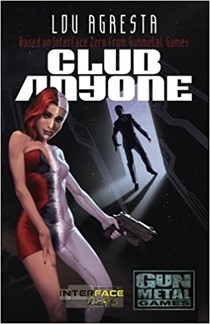 Club Anyone (Lou Agresta) – It’s been a while since I tore through a book at the pace I read this one. Club anyone is a solid cyberpunk adventure that really reminded me of why I love the genre. It is also setting fiction like the Pathfinder Tales. Gun Metal Games has a multi-system cyberpunk setting called Interface Zero which as of this past June included a Pathfinder version of the rules. So I recommend it if you’re planning on running or playing in an Interface Zero game but beyond that it’s an entertaining story that might offer ideas to starfinder players and GMs.
Club Anyone (Lou Agresta) – It’s been a while since I tore through a book at the pace I read this one. Club anyone is a solid cyberpunk adventure that really reminded me of why I love the genre. It is also setting fiction like the Pathfinder Tales. Gun Metal Games has a multi-system cyberpunk setting called Interface Zero which as of this past June included a Pathfinder version of the rules. So I recommend it if you’re planning on running or playing in an Interface Zero game but beyond that it’s an entertaining story that might offer ideas to starfinder players and GMs.
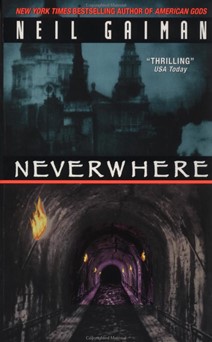 Neverwhere (Neil Gaiman) – This is a story I’ve read, reread, and watched (there was a BBC mini-series that predates the novel) several times since its release. A dark and twisted retelling of the Wizard of Oz Set in modern London (and the magical realm of London below). For homebrew campaigns, it is a great example of how you can run a traditional fantasy game run right up against the modern world. Frankly, I was almost inspired to start a brand new campaign just writing this hundred-word review and I haven’t read the book again for a while now.
Neverwhere (Neil Gaiman) – This is a story I’ve read, reread, and watched (there was a BBC mini-series that predates the novel) several times since its release. A dark and twisted retelling of the Wizard of Oz Set in modern London (and the magical realm of London below). For homebrew campaigns, it is a great example of how you can run a traditional fantasy game run right up against the modern world. Frankly, I was almost inspired to start a brand new campaign just writing this hundred-word review and I haven’t read the book again for a while now.
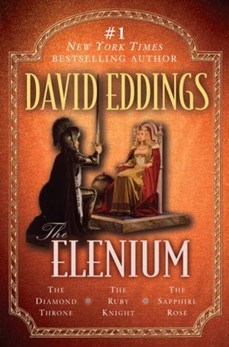 The Ellenium (David Eddings) – A tale of high fantasy, courtly intrigue, and church knights told well. The series really shaped how I view paladins as a class and I’ve spoken to many others over the years who have felt the same. I played in an AD&D Greyhawk “paladin” campaign in high school that drew on this series as inspiration. The bulk of the party were paladins and the conflict of the game ran around treachery from within our respective churches and the growing threat of Iuz the Evil from without.
The Ellenium (David Eddings) – A tale of high fantasy, courtly intrigue, and church knights told well. The series really shaped how I view paladins as a class and I’ve spoken to many others over the years who have felt the same. I played in an AD&D Greyhawk “paladin” campaign in high school that drew on this series as inspiration. The bulk of the party were paladins and the conflict of the game ran around treachery from within our respective churches and the growing threat of Iuz the Evil from without.
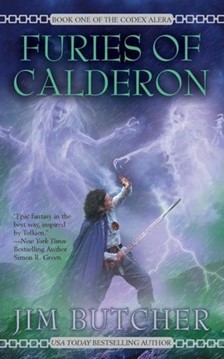 Codex Alera (Jim Butcher) – Most people know Jim Butcher from the Dresden Files (which are fantastic), but I also encourage people to read his Codex Alera. There are a number of familiar fantasy tropes present but also some pretty-neat innovations as well. The series is a bizarre cross between the roman legion and Pokémon that somehow works. The series largely follows the youth Tavi who may be the only Aleran who doesn’t have a fury (elemental spirit companion) of his own. Tavi is a pretty standard epic hero, there are secrets and gifts that make him uniquely suited to face the threat of the alien Vord. The furies for example, it’s a little like nearly everyone has an elemental-eidolon (or more than one in some cases) summoner players may find use in the relationships between the character’s and their furies. While half-orc, barbarian, and skald players may find inspiration in the culture of the Marat.
Codex Alera (Jim Butcher) – Most people know Jim Butcher from the Dresden Files (which are fantastic), but I also encourage people to read his Codex Alera. There are a number of familiar fantasy tropes present but also some pretty-neat innovations as well. The series is a bizarre cross between the roman legion and Pokémon that somehow works. The series largely follows the youth Tavi who may be the only Aleran who doesn’t have a fury (elemental spirit companion) of his own. Tavi is a pretty standard epic hero, there are secrets and gifts that make him uniquely suited to face the threat of the alien Vord. The furies for example, it’s a little like nearly everyone has an elemental-eidolon (or more than one in some cases) summoner players may find use in the relationships between the character’s and their furies. While half-orc, barbarian, and skald players may find inspiration in the culture of the Marat.
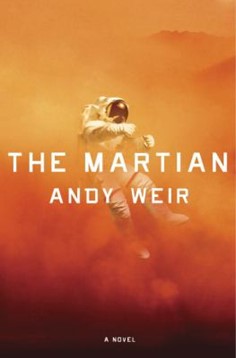 The Martian (Andy Weir) – This is probably my all-time favorite hard sci-fi novel. An astronaut stranded alone on mars. The familiar stranded on a desert island story engagingly reimagined and well told. The uses for a Starfinder campaign are obvious right away but imagine for a moment telling the same sort of story as an arch in a fantasy campaign. What if a character became trapped on another plane of existence and had to struggle to survive in the alien environment while his companions had to find a way to open a portal and rescue him before his resources ran out. The trapped person could be a player in a solo survival campaign or an NPC McGuffin the player’s need to rescue. Alternatively, maybe the GM runs two concurrent campaigns one with a single trapped PC or a small party of trapped adventures and a second game where the PCs back home race to save the heroes of the first campaign.
The Martian (Andy Weir) – This is probably my all-time favorite hard sci-fi novel. An astronaut stranded alone on mars. The familiar stranded on a desert island story engagingly reimagined and well told. The uses for a Starfinder campaign are obvious right away but imagine for a moment telling the same sort of story as an arch in a fantasy campaign. What if a character became trapped on another plane of existence and had to struggle to survive in the alien environment while his companions had to find a way to open a portal and rescue him before his resources ran out. The trapped person could be a player in a solo survival campaign or an NPC McGuffin the player’s need to rescue. Alternatively, maybe the GM runs two concurrent campaigns one with a single trapped PC or a small party of trapped adventures and a second game where the PCs back home race to save the heroes of the first campaign.
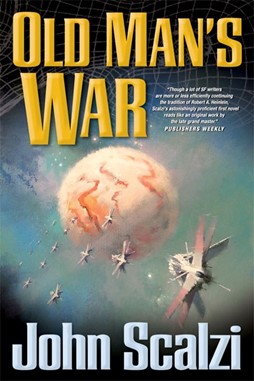 The Old Man’s War series (John Scalzi) – Enlist in the army at retirement age and get a high tech replacement body to better go and fight aliens. This series is an interesting reconstruction of military sci-fi and as the series progresses it become so much more. I wonder how many mechanic players who have read this series will call their exocortex “asshole” or some other pejorative.
The Old Man’s War series (John Scalzi) – Enlist in the army at retirement age and get a high tech replacement body to better go and fight aliens. This series is an interesting reconstruction of military sci-fi and as the series progresses it become so much more. I wonder how many mechanic players who have read this series will call their exocortex “asshole” or some other pejorative.
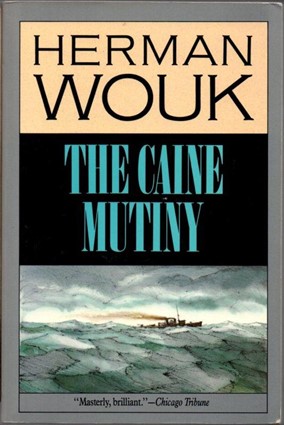 The Caine Mutiny (Herman Wouk) – When I was in high school we read the play the Caine Mutiny Court Martial and watched the Humphry Bogart film the Caine Mutiny but that was only a small part of the actual novel. I enjoyed that small bit enough that I picked up the novel. In addition to being an entertaining read I could easily see setting a Starfinder campaign aboard a larger ship crewed by characters from the novel as NPCs. Ditto that in Pathfinder. Run in another more military setting I could even see recycling a number of the plot elements as a part of a longer campaign.
The Caine Mutiny (Herman Wouk) – When I was in high school we read the play the Caine Mutiny Court Martial and watched the Humphry Bogart film the Caine Mutiny but that was only a small part of the actual novel. I enjoyed that small bit enough that I picked up the novel. In addition to being an entertaining read I could easily see setting a Starfinder campaign aboard a larger ship crewed by characters from the novel as NPCs. Ditto that in Pathfinder. Run in another more military setting I could even see recycling a number of the plot elements as a part of a longer campaign.
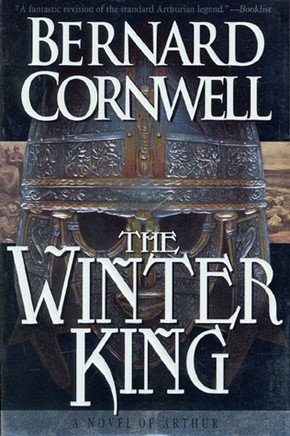 The Warlord Trilogy (Bernard Cornwell) – I’m a sucker for tales of Arthurian Legend and Cornwell delivers one of my favorite versions and includes historical notes at the end of each volume as a bonus. Surprisingly, his main character is not Arthur however; instead, we follow one of Arthur’s lesser-known knights, Derfel Cadarn and we meat Arthur as a friend. The trilogy is full of the familiar heroism, treachery and magic but not the high magic of typical fantasy. Instead, we’re treated to more earthy, coincidental, and realistic magic. I reskinned portions of this fictional Britain’s kingdoms and politics as a star system for a long running d20 Star Wars campaign.
The Warlord Trilogy (Bernard Cornwell) – I’m a sucker for tales of Arthurian Legend and Cornwell delivers one of my favorite versions and includes historical notes at the end of each volume as a bonus. Surprisingly, his main character is not Arthur however; instead, we follow one of Arthur’s lesser-known knights, Derfel Cadarn and we meat Arthur as a friend. The trilogy is full of the familiar heroism, treachery and magic but not the high magic of typical fantasy. Instead, we’re treated to more earthy, coincidental, and realistic magic. I reskinned portions of this fictional Britain’s kingdoms and politics as a star system for a long running d20 Star Wars campaign.
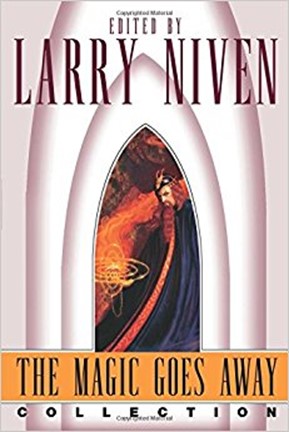 The Magic Goes Away Collection (edited by Larry Niven) – What is magic was a finite resource? What if magic was nearly all used up like gasoline in the Mad Max universe? This collection of novellas short stories is full of fascinating ideas that can be mined for all sorts of fantasy gaming. Even if you just to draw from it ideas for compelling stories and encounters around dispel magic and anti-magic shell.
The Magic Goes Away Collection (edited by Larry Niven) – What is magic was a finite resource? What if magic was nearly all used up like gasoline in the Mad Max universe? This collection of novellas short stories is full of fascinating ideas that can be mined for all sorts of fantasy gaming. Even if you just to draw from it ideas for compelling stories and encounters around dispel magic and anti-magic shell.
Far from an exhaustive list, I’m sure I’ll revisit this topic in the future, however, feel free to post any recommendations you have in the comments below. Burst of Insight will return tomorrow with the conclusion of the GM roundtable interview we began two weeks ago.


